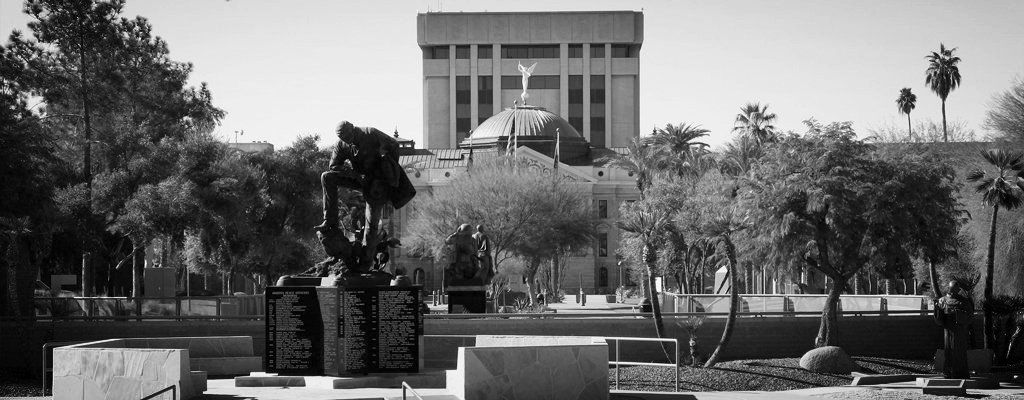
Prompt Payment Act
Summary of the Law Before the 2010 Amendments
Updated October 27, 2014
The Arizona Prompt Payment Act, without the 2010 amendments, remains in effect for construction contracts where (a) the owner first distributed bid plans, specifications or contract documents to a contractor or subcontractor before January 1, 2011, and (b) the owner and contractor entered into their contract before January 1, 2012.
See also: Arizona Prompt Payment Act: Current Overview and Summary of the Amendments Enacted in 2010
Contractor’s Prompt Payment Obligations
Pursuant to the Arizona Prompt Payment Act, every contractor or subcontractor must pay its licensed subs and suppliers for their labor or materials within seven days of its own receipt of payment from the owner. Unlicensed contractors and subcontractors cannot enforce the prompt payment law.
A general contractor is not required to submit a subcontractor’s invoice to the owner for payment if he disputes the sufficiency of the work performed or the materials supplied. A general contractor can withhold certification of the subcontractor’s work for unsatisfactory job progress; defective construction work or material; disputed work; failure to comply with material provisions of the construction contract; failure of the subcontractor to make timely payments for labor, equipment and materials; damage to another tradesman; or reasonable evidence that the subcontract cannot be completed for the unpaid balance of the subcontract price.
However, a general contractor is not entitled to apply for and receive payment for a subcontractor’s work and then withhold payment from the subcontractor or supplier. A subcontractor or supplier who is not paid within the seven-day period is entitled to interest on the unpaid amount at 18% per annum. Non-payment is also grounds for disciplinary action by the Registrar of Contractors against the non-paying contractor or subcontractor.
Owner’s Prompt Payment Obligations
Another provision of the Arizona prompt payment law currently requires a project owner to promptly pay the general contractor. In most cases, the project owner is required to make monthly progress payments to the general contractor based upon the general contractor’s billing or estimate of work performed during the preceding 30-day billing cycle.
Each monthly billing or estimate is deemed approved 14 days after receipt by the owner, unless the owner issues a written statement detailing the items that are not approved and certified. The owner must issue the progress payment to the general contractor within seven days thereafter. Late payments bear interest at 18% per annum. The owner and general contractor can agree to modify the statutory payment terms only if notice of an alternative billing cycle appears plainly on each page of the project plans, including bid plans.
An owner can decline to approve and certify any billing or portion of a billing, and withhold a reasonable amount from the progress payment, for the following reasons:
- unsatisfactory job progress;
- defective construction work or materials not remedied;
- disputed work or materials;
- failure to comply with other material provisions of the construction contract;
- third party claims filed or reasonable evidence that a claim will be filed;
- failure of the contractor or subcontractor to make timely payments for labor, equipment and materials;
- damage to the owner;
- reasonable evidence that the construction contract cannot be completed for the unpaid balance of the construction contract sum; or
- retention.
The owner may withhold only an amount sufficient to pay the direct expenses it reasonably expects to incur to correct the items set forth in its written notice.
Contractor’s Right to Stop Work
A contractor may suspend performance or terminate the construction contract if the owner fails to timely pay the amount certified and approved, provided the contractor gives seven days’ prior written notice to the owner.
Subcontractor’s Right to Stop Work
Similarly, a subcontractor may suspend performance or terminate a subcontract if (a) the owner fails to timely pay the amount certified and approved for the subcontractor’s work, and (b) the general contractor also fails to pay for that work. Before suspending performance or terminating the subcontract for this reason, a subcontractor must give three days’ prior written notice to the general contractor and the owner.
A subcontractor also may suspend performance or terminate a subcontract if the owner timely pays the general contractor for the subcontractor’s work but the general contractor fails to pay the subcontractor. In this instance the subcontractor must give seven days’ prior written notice to the general contractor and the owner.
A subcontractor may suspend performance or terminate a subcontract if the owner declines to certify and approve payment for the subcontractor’s work, but the reason for refusal is not the fault of the subcontractor or directly related to the subcontractor’s work. In this instance the subcontractor must give seven days’ prior written notice to the general contractor and the owner.
Notice
The written notice required by this section must be personally delivered to an individual, to a member of a limited liability company, or to an officer of a corporation, or delivered by any means that gives written, third-party verification of delivery to the business address of the recipient, e.g., by courier or Federal Express.
In each case, the contractor or subcontractor cannot be considered in breach of the contract because it lawfully suspends work or terminates the contract according to the statute. A contractor or subcontractor that suspends performance in compliance with the statute is not required to provide further services or materials until it receives payment of the amount certified and approved, together with the mobilization costs of shutting down and starting up the project.
